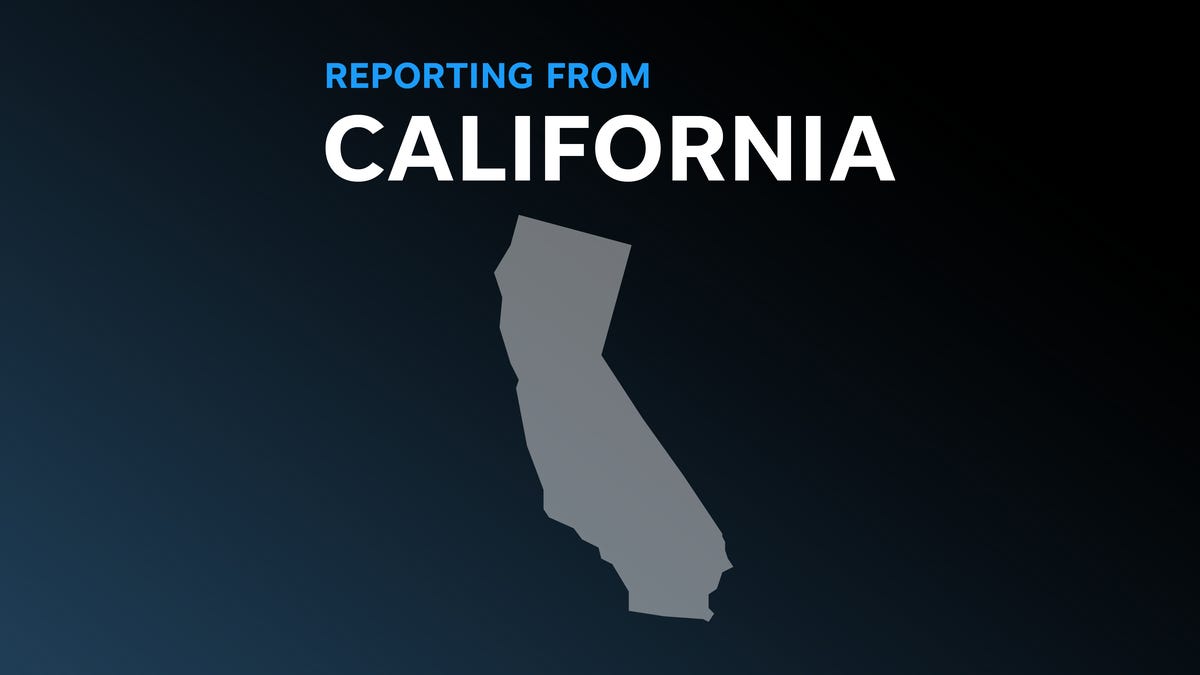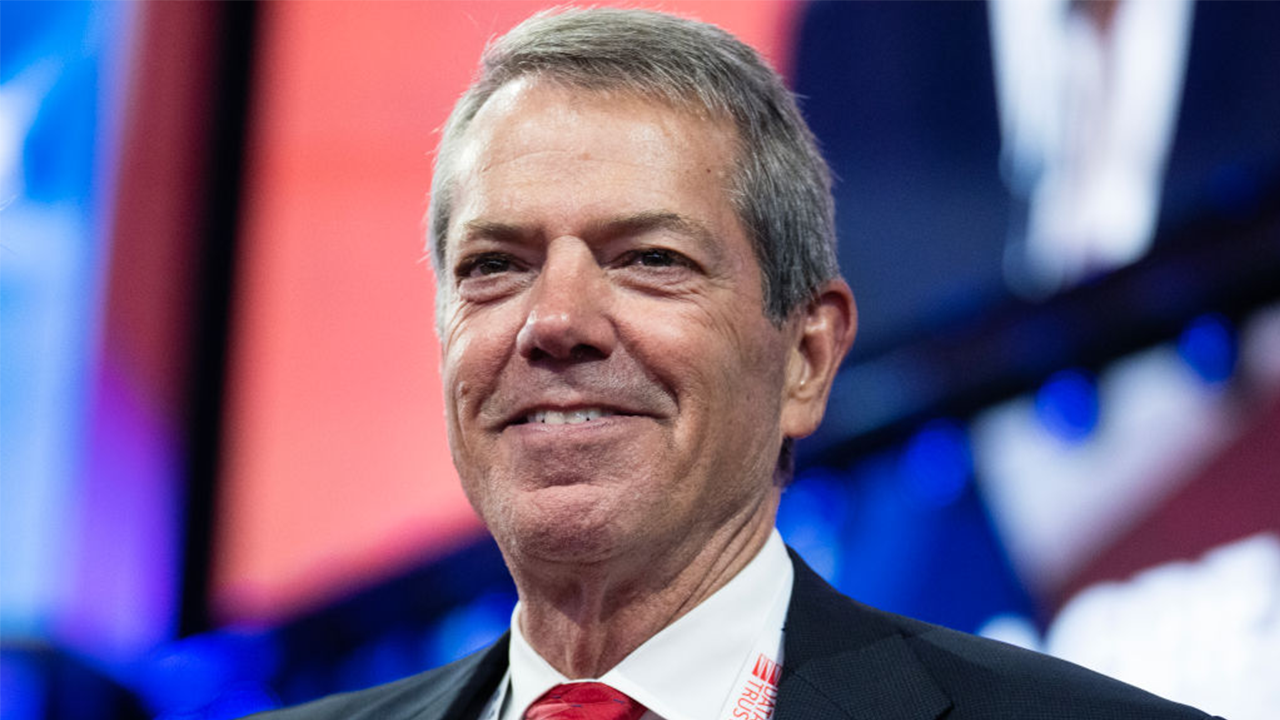New Jersey
New Jersey Gov. Phil Murphy attempts to woo New Yorkers in retaliation for congestion tax

The grass is greener in the Garden State? New Jersey Gov. Phil Murphy sure wants you to think so!
Murphy is taking aim at neighboring Gov. Kathy Hochul over New York’s congestion pricing program — with an ad campaign aimed at wooing Big Apple residents and businesses into relocating to his state, The Post has learned.
“New York’s congestion tax scheme is unfair for North Jersey commuters who already pay so much in tolls and fees,” Murphy said in a statement, referring to the Metropolitan Transportation Authority‘s controversial higher “congestion tax” Jerseyans would have to pay to enter Midtown Manhattan.
“At the same time, it presents an opportunity for us to stress the value proposition of New Jersey for New York City residents and businesses alike: an ideal location, talented pool of workers, less congestion, and, most importantly, no congestion tax. I’m out there every day making the argument for why businesses should give New Jersey a close look for relocation.”
Starting Monday, New Jersey’s not-for-profit economic development arm allied with Murphy — Choose NJ — will run digital ads at key strategic crossings on the New York side of the Hudson entering or leaving Manhattan.
One ad reads: “PAY A CONGESTION TAX TO SIT IN NYC TRAFFIC? GET OUTTA HERE. Move your business to New Jersey.”
A similar second ad states: “LESS CONGESTION. NO CONGESTION TAX. Move your business to New Jersey.”

At the bottom right, the billboards urge motorists to visit Choose NJ’s website, thisisnewjersey.com. The substantial six-figure ad buy will run for a few weeks, New Jersey officials said.
Many New Yorkers already move to Jersey every year for more affordable housing, space and better schooling.
Hochul backs the congestion pricing the MTA plans to charge to enter the business zone south of 60th Street, a toll that’s likely to cost motorists between $9 and $23, while trucks could face a charge of up to $85 depending on their size.
The authorization for the tolling plan was originally approved by former Gov. Andrew Cuomo — when Hochul was his lieutenant governor — and the New York legislature in 2019.
The plan had been tied up in bureaucratic reviews, but inched closer to reality when President Biden — via the Federal Highway Administration — tentatively signed off on the MTA’s long-delayed environmental assessment of New York City’s quest to implement tolling in parts of Manhattan.
Hochul, via her rep, defended the tolling plan on Sunday.


“Governor Hochul is committed to implementing congestion pricing to reduce traffic, improve air quality, and support our public transit system,” said Hochul spokesman John Lindsay.
“We’ve worked closely with partners across government and with community members over the last four years to develop a plan that will achieve these goals. The finding of legal sufficiency is a critical step that will allow our Environmental Assessment to be publicly available for anyone to read, and we will continue to work with our partners to move congestion pricing forward.”
The MTA, which will run the tolling system, defended the plan as pro-business as well pro-environment.
“New York has a world-renowned economy that attracts the most talented people and companies. Economies that thrive in the 21st century will be those with less congestion and car dependency, so New Jersey may try to syphon off a few companies but overall, the central business district tolling program is projected to be a huge boost for New York’s economy,” said MTA spokesman Aaron Donovan.
The MTA also rebutted Murphy and allies branding the plan a congestion “tax” — saying a tax is something that cannot be avoided, but the Midtown toll can be avoided by not driving into the central business district.
The ads are misguided, MTA officials argued, because if the program proceeds and is successful, there will be fewer motorists from Jersey and elsewhere sitting in traffic.

Murphy is ratcheting up his opposition now that the tolling plan — designed to curb Midtown traffic while raising revenue for the MTA — seems likely to become a reality.
The MTA last week announced concessions to try to soften outer-borough opposition and encourage motorists to drive into Midtown during off-peak hours to reduce traffic jams.
Drivers hitting the road below 60th street between the hours of midnight and 4 a.m. will receive at least a 50% discount on a toll that’s likely to cost between $9 and $23, according to MTA officials.
Under the plan, lower-income commuters — making $50,000 annually, or otherwise eligible for government aid — will get a 25% discount on peak and off-peak tolls after making 10 trips to the zone.
Taxis and other for-hire vehicles will also only be charged once per day, no matter how many times they enter the area.
Officials are also considering letting drivers enter the congestion zone for free between midnight and 6 a.m. to reduce truck traffic on the Cross-Bronx Expressway.

The agency had been under fire after its environmental reviews that showed that the Midtown congestion program could put hundreds of extra trucks on freeways in the poorest borough with neighborhoods that suffer from among the city’s highest asthma rates.
The MTA also promised to contribute $15 million to the city’s program to upgrade the ancient and dirty diesel-powered refrigerated containers at the Hunts Point Market in the South Bronx, the main distribution point for much of the city’s supply of fresh fruit and vegetables.
Cleaning up Hunts Point, the MTA said, will help offset any additional pollution from new truck traffic diverting from Manhattan to The Bronx to avoid the fee.
Locations for Jersey’s new ad campaign include: the George Washington Bridge, Lincoln Tunnel, Queensboro Bridge and Robert F. Kennedy Bridge, as well as spots along the West Side Highway, Major Deegan Expressway, Sheridan Expressway and the Cross Island Parkway.

New Jersey
'We are not California': New Jersey dealers push back on electric truck rules

Trucks move past cargo containers at a port in Bayonne, N.J., in 2021. The state is adopting California’s Advanced Clean Trucks rules, which require at least 7% of medium- and heavy-duty vehicles sold in the state to be zero-emission for model year 2025. Dealers are petitioning for a delay, so far unsuccessfully.
Spencer Platt/Getty Images
hide caption
toggle caption
Spencer Platt/Getty Images
As a handful of states start adopting California’s sales mandates for zero-emission trucks, dealers in New Jersey are pushing back.
These rules are designed to accelerate the transition to electric vehicles in heavy trucking. They require truck manufacturers to ensure at least 7% of their total sales are zero-emission in the states that are opting in to the regulations.


Currently, 10 other states have chosen to follow these Advanced Clean Truck rules, which are also known as ACT. But a push by dealers in New Jersey to delay implementation of the rules shows the battle lines over these mandates. There’s no indication that the push will succeed; the rules are set to go into effect at the start of the new year, and New Jersey’s governor has indicated support for the current timeline.
But the pressure for delay is a preview of an even bigger fight that’s brewing – one over state EV mandates for passenger vehicles.
Big vehicles with big environmental footprints
Heavy trucks have an outsized effect on both climate change and human health. Emissions from large diesel vehicles contribute to asthma and other health problems, particularly in communities near warehouses and ports.
California is uniquely positioned to address this problem, because the federal Clean Air Act — recognizing California’s acute pollution problems and history of regulating emissions — allows the state to set its own, stricter standards. Other states can either opt in to California’s rules or stick with the federal ones.
With the Trump administration expected to roll back federal standards, state rules are likely to become more significant. And while the incoming administration is expected to challenge California’s right to set these rules at all, truck makers are currently in a partnership with the state. . They’ve agreed to follow its rules regardless of electoral or legal outcomes.
In exchange for honoring the rules, truck manufacturers have won more flexibility – like getting three years to comply, instead of one.
Truck dealers, however, are not a part of that partnership. And in New Jersey, they’re telling state lawmakers that the rules are unworkable.
A push to delay, or urgency to act?
New Jersey State Assemblyman Clinton Calabrese said a lobbyist for truck dealers inspired him to introduce a bill currently before the legislature that would delay the clean truck rules by two years. The public debate over that bill — which is not scheduled for a full vote — was unusually intense.
At a hearing over the bill earlier this month, there was a clear theme among the truck dealers who showed up to testify.
“We all want a cleaner environment, but we just can’t do it at this point, the way this is written,” said Frank Piazzola.
“I know we all want to do the right thing,” said Jack Licata. “But we just can’t right now.”
“We are not California,” said Spencer Campbell. “We don’t have the size, the capacity, nor have made the investments necessary to make ACT work.”
Dealers are, technically, not regulated by these rules — they apply to manufacturers. But dealers have to actually sell the vehicles. And they say that between high prices, and buyer concerns about charging and range limitations, they just can’t move enough EVs to make up at least 7% of the market. It’s particularly hard for the very largest trucks, which are called class 7 and 8 in industry jargon.
“The challenge here is very simple. There is no demand for EVs for class 7 through 8, especially, which I represent in New Jersey,” said Campbell, who sells both electric and diesel trucks. “That’s all we’re trying to tell you guys here.”
Environmental groups, in turn, said that because of the extra flexibilities built into the rules, they are feasible — and that there’s more at stake than dealership sales.
“We have the policies we need and they are fully achievable,” said Karla Sosa of the Environmental Defense Fund.
Others warned about the dangers of a delay. “There is a real cost in human suffering to waiting to implement these measures,” said Nicky Sheats of the New Jersey Environmental Justice Alliance.
“There are people dying in my community from diesel fumes,” said Kelli Koontz-Wilson of the Coalition for Healthy Ports.
Another speaker brought tomatoes from his garden, harvested in December. He called it a sign of climate change, a reminder of the global stakes of this debate.
Where are truck makers in this debate? Well, it’s complicated. They are technically neutral: The Truck and Engine Manufacturers Association (EMA) and its member companies have agreed to not lobby against states adopting the ACT rules. That’s a requirement of their partnership with California that, in turn, lets them negotiate for flexibilities. Neither the trade group nor any of its members were at the hearing this month.
But the EMA has been in touch with New Jersey and other states to express concerns about parts of the regulations. Jed Mandel, the head of the EMA, said the members of his trade group have invested billions in EVs but worry that the mandates are “too much, too fast.”
Would a sales hit justify a delay?
Everyone involved in this debate agrees on one thing: There are real challenges to electrifying New Jersey’s fleet, particularly when it comes to the very largest trucks. Not all heavy-duty vehicles are available in zero-emission versions yet. Or those versions aren’t practical for every need, like long-haul trucking. The upfront costs of buying electric vehicles are significantly higher, and switching to electric trucks requires building charging infrastructure. And while 7% might not sound like a lot, as of last year EVs were less than 1% of heavy-duty truck sales in the state, according to Atlas Public Policy.
But regulators and environmental groups say those problems are actively being addressed.
“This program is not just feasible. It’s already well underway,” Shawn M. LaTourette, New Jersey’s commissioner of environmental protection, told NPR in an interview.
Manufacturers have already started to bank credits based on previous year’s sales, which the rules allow. LaTourette said for medium-duty vehicles, the industry as a whole is set to meet the requirements already, before the new year even starts.
The heavy-duty trucks, the class 7 and 8 that Spencer Campbell warned about, are more challenging. But even there, the industry only needs to sell 109 trucks, according to those preliminary numbers. That’s not even counting trucks sold in 2024, which can be counted toward 2025’s total. And there’s government funding to help with costs, including hundreds of millions of dollars for charging for these vehicles specifically.
Dealers say it’s not enough. And some point to California as a cautionary tale. While the percentage of electric trucks sold in the state has risen sharply, total truck sales have fallen since these rules went into effect, starting with trucks manufactured for model year 2024.
In the first 10 months of 2024, sales of medium- and heavy-duty trucks fell 6%, and the largest trucks were down 20%, compared to the previous year, according to S&P Global Mobility data. Nationally, the market dropped 3% over that timeframe. The company’s Greg Genette said several factors are driving that decline, including ACT.
California and the other states embracing ACT are already adjusting the regulations to adapt to market realities. Take Washington state, which has already adopted these rules for trucks manufactured for model year 2025. There, truck makers are also on track for compliance in most vehicle categories. Still, for the biggest trucks, EVs are barely over 1% of sales — far short of the requirement. That’s according to data the state shared with NPR.
Washington state regulators say those rules are currently being adapted to make them more feasible. For example, one policy change under consideration would reduce the EV sales requirements for the biggest trucks by an estimated 90% or more in 2026.
In New Jersey, EV advocate Pam Frank says opposition to the rules has mixed misinformation — like claims that the regulations ban diesel trucks — with genuine challenges, like companies’ charging needs and higher truck prices. For the legitimate problems, she said, “we have answers to each of them.”
“This regulation should be going into effect as planned with all the flexibility in there,” she said, “and we should make sure that the dealers are not getting squeezed unfairly.”
A brewing fight
Similar debates have played out in other states adopting these rules, like New York and Oregon. So far, they’ve all stuck with their planned timelines.
It looks like that may also happen in New Jersey. Calabrese, the state lawmaker who introduced the bill to delay, said he doesn’t expect it to become law. His transportation committee voted unanimously to advance it, but he’s not expecting similar support from the state senate’s environmental committee – and the legislature is now out of session.
The rules will still go into effect on January 1.
But the fight won’t be over. This debate is over trucks, but another fight is coming.
California is also setting mandates for passenger car sales, with new rules that would ramp up to requiring 100% of the cars sold in the state to be emission-free (including plug-in hybrids). Currently, about 1 in 4 new cars sold in California fit the requirement. The national average is around 10%.
For model year 2026, sales of which begin next year, California will require 35% of new sales to be electric.
Laura Perrotta is the president of NJ CAR, a group representing car and truck dealers. She was at that hearing lobbying for a delay in the truck mandates — and when these EV mandates actually kick in for passenger cars, she said, “it’s going to cause real reckoning with the auto industry across the country.”
About a dozen states are currently planning to follow California’s car standards. Those rules are almost certain to wind up as the subject of a legal battle with the Trump administration. But before they do, they could face political battles closer to home.
New Jersey
Body found in N.J. forest, officials say

A body was found Sunday afternoon in Belleplain State Forest in Cape May County, the New Jersey Department of Environmental Protection’s State Park Police confirmed to NJ Advance Media.
Police said they could not release any other details Sunday night as the matter was still under investigation.
Belleplain State Forest is a 21,320-acre New Jersey State Forest in northern Cape May County and eastern Cumberland County.
Please consider supporting NJ.com with a voluntary subscription.
Chris Sheldon may be reached at csheldon@njadvancemedia.com.
New Jersey
Hudson River Rivalry Matinee Matchup | PREVIEW | New Jersey Devils

New Jersey host the NY Rangers at Prudential Center for the first time this season.
You can watch on MSGSN or listen on the Devils Hockey Network.
Read below for your game preview and pre-game story below. Tonight’s game is sponsored by
-

 Politics1 week ago
Politics1 week agoCanadian premier threatens to cut off energy imports to US if Trump imposes tariff on country
-
/cdn.vox-cdn.com/uploads/chorus_asset/file/25789444/1258459915.jpg)
/cdn.vox-cdn.com/uploads/chorus_asset/file/25789444/1258459915.jpg) Technology1 week ago
Technology1 week agoOpenAI cofounder Ilya Sutskever says the way AI is built is about to change
-

 Politics1 week ago
Politics1 week agoU.S. Supreme Court will decide if oil industry may sue to block California's zero-emissions goal
-
/cdn.vox-cdn.com/uploads/chorus_asset/file/25546252/STK169_Mark_Zuckerburg_CVIRGINIA_D.jpg)
/cdn.vox-cdn.com/uploads/chorus_asset/file/25546252/STK169_Mark_Zuckerburg_CVIRGINIA_D.jpg) Technology1 week ago
Technology1 week agoMeta asks the US government to block OpenAI’s switch to a for-profit
-

 Business1 week ago
Business1 week agoFreddie Freeman's World Series walk-off grand slam baseball sells at auction for $1.56 million
-
/cdn.vox-cdn.com/uploads/chorus_asset/file/23951353/STK043_VRG_Illo_N_Barclay_3_Meta.jpg)
/cdn.vox-cdn.com/uploads/chorus_asset/file/23951353/STK043_VRG_Illo_N_Barclay_3_Meta.jpg) Technology1 week ago
Technology1 week agoMeta’s Instagram boss: who posted something matters more in the AI age
-
News1 week ago
East’s wintry mix could make travel dicey. And yes, that was a tornado in Calif.
-
/cdn.vox-cdn.com/uploads/chorus_asset/file/24924653/236780_Google_AntiTrust_Trial_Custom_Art_CVirginia__0003_1.png)
/cdn.vox-cdn.com/uploads/chorus_asset/file/24924653/236780_Google_AntiTrust_Trial_Custom_Art_CVirginia__0003_1.png) Technology2 days ago
Technology2 days agoGoogle’s counteroffer to the government trying to break it up is unbundling Android apps



















